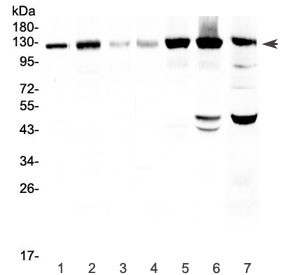Cookie preferences
This website uses cookies, which are necessary for the technical operation of the website and are always set. Other cookies, which increase the comfort when using this website, are used for direct advertising or to facilitate interaction with other websites and social networks, are only set with your consent.
Configuration
Technically required
These cookies are necessary for the basic functions of the shop.
"Allow all cookies" cookie
"Decline all cookies" cookie
CSRF token
Cookie preferences
Currency change
Customer-specific caching
FACT-Finder tracking
Individual prices
Selected shop
Session
Comfort functions
These cookies are used to make the shopping experience even more appealing, for example for the recognition of the visitor.
Note
Show the facebook fanpage in the right blod sidebar
Statistics & Tracking
Affiliate program
Conversion and usertracking via Google Tag Manager
Track device being used
| Item number | Size | Datasheet | Manual | SDS | Delivery time | Quantity | Price |
|---|---|---|---|---|---|---|---|
| NSJ-RQ4038 | 100 µg | - | - |
3 - 10 business days* |
755.00€
|
If you have any questions, please use our Contact Form.
You can also order by e-mail: info@biomol.com
Larger quantity required? Request bulk
You can also order by e-mail: info@biomol.com
Larger quantity required? Request bulk
0.5mg/ml if reconstituted with 0.2ml sterile DI water. EPHA2 (Ephrin type-A receptor 2) also... more
Product information "Anti-EPHA2 / Eph Receptor A2"
0.5mg/ml if reconstituted with 0.2ml sterile DI water. EPHA2 (Ephrin type-A receptor 2) also known as ECK, is a protein that in humans is encoded by the EPHA2 gene. This gene belongs to the ephrin receptor subfamily of the protein-tyrosine kinase family. Receptors in the EPH subfamily typically have a single kinase domain and an extracellular region containing a Cys-rich domain and 2 fibronectin type III repeats. By somatic cell hybrid analysis and fluorescence in situ hybridization, the EPHA2 gene is mapped to chromosome 1p36.1. EPHA2 was readily detectable in human lens fiber cells using immunoblot and immunohistochemistry. EGFR and EPHA2 mediated HCV entry by regulating CD81 -claudin-1 (CLDN1) coreceptor associations and viral glycoprotein-dependent membrane fusion. Protein function: Receptor tyrosine kinase which binds promiscuously membrane-bound ephrin-A family ligands residing on adjacent cells, leading to contact-dependent bidirectional signaling into neighboring cells. The signaling pathway downstream of the receptor is referred to as forward signaling while the signaling pathway downstream of the ephrin ligand is referred to as reverse signaling. Activated by the ligand ephrin-A1/EFNA1 regulates migration, integrin-mediated adhesion, proliferation and differentiation of cells. Regulates cell adhesion and differentiation through DSG1/desmoglein-1 and inhibition of the ERK1/ERK2 (MAPK3/MAPK1, respectively) signaling pathway. May also participate in UV radiation-induced apoptosis and have a ligand- independent stimulatory effect on chemotactic cell migration. During development, may function in distinctive aspects of pattern formation and subsequently in development of several fetal tissues. Involved for instance in angiogenesis, in early hindbrain development and epithelial proliferation and branching morphogenesis during mammary gland development. Engaged by the ligand ephrin-A5/EFNA5 may regulate lens fiber cells shape and interactions and be important for lens transparency development and maintenance. With ephrin-A2/EFNA2 may play a role in bone remodeling through regulation of osteoclastogenesis and osteoblastogenesis. [The UniProt Consortium]
| Keywords: | Anti-ECK, Anti-EPHA2, EC=2.7.10.1, Anti-Epithelial cell kinase, Anti-Ephrin type-A receptor 2, Anti-Tyrosine-protein kinase receptor ECK, EPHA2 Antibody / Eph Receptor A2 |
| Supplier: | NSJ Bioreagents |
| Supplier-Nr: | RQ4038 |
Properties
| Application: | WB, FC, ELISA |
| Antibody Type: | Polyclonal |
| Conjugate: | No |
| Host: | Rabbit |
| Species reactivity: | human, mouse, rat |
| Immunogen: | A recombinant human partial protein corresponding to amino acids M851-N970 |
| Format: | Purified |
Database Information
| KEGG ID : | K05103 | Matching products |
| UniProt ID : | P29317 | Matching products |
| Gene ID | GeneID 1969 | Matching products |
Handling & Safety
| Storage: | +4°C |
| Shipping: | +4°C (International: +4°C) |
Caution
Our products are for laboratory research use only: Not for administration to humans!
Our products are for laboratory research use only: Not for administration to humans!
Information about the product reference will follow.
more
You will get a certificate here
Viewed











